The key facts as Hezbollah accuses of Israel of declaring war
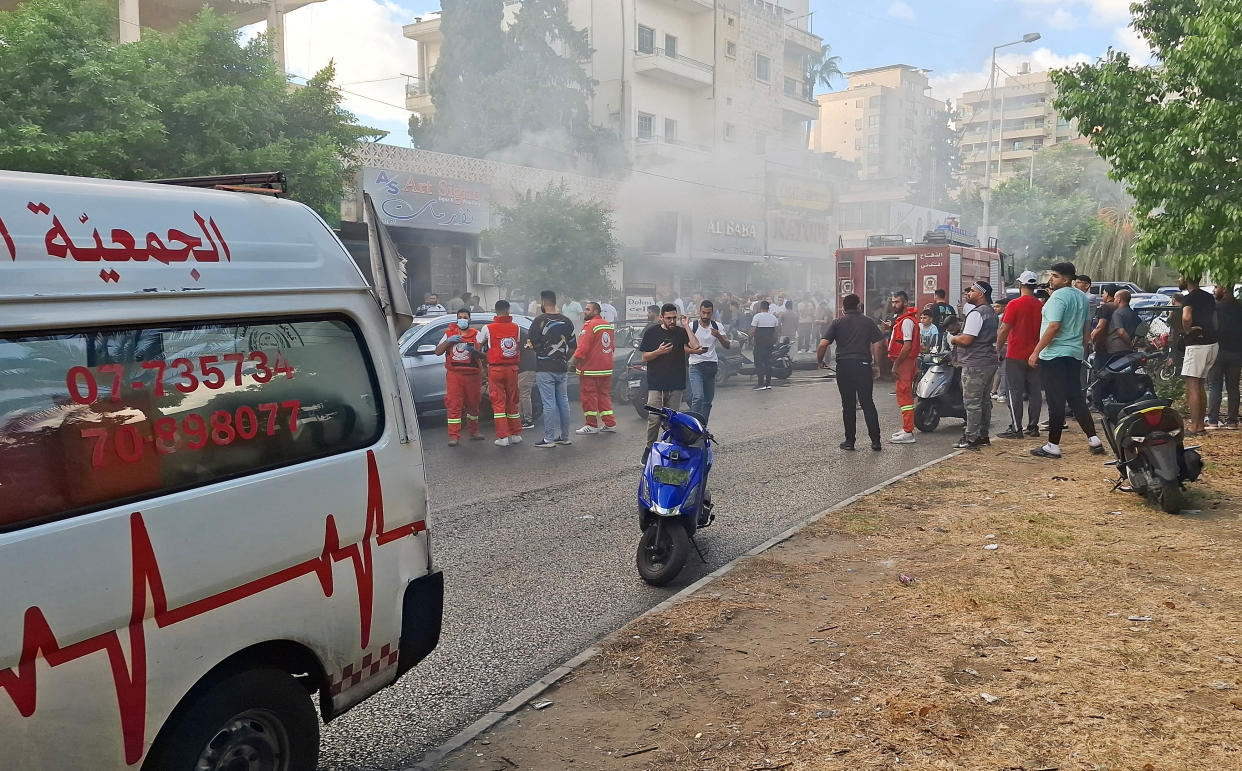
The Israeli military has launched air strikes in southern Lebanon as the leader of Hezbollah condemned this week's deadly pager and walkie-talkie attacks that he said "crossed all red lines".
Lebanon and Hezbollah have blamed Israel for the attacks on Hezbollah's communications equipment that killed 37 people and wounded around 3,000. Israel has not directly commented on the attacks, which security sources say were probably carried out by its Mossad spy agency.
On Thursday, Hezbollah leader Hassan Nasrallah said in a TV address: "The enemy went beyond all controls, laws and morals," adding that the attacks "could be considered war crimes or a declaration or war."
As he spoke, sonic booms from Israeli warplanes shook buildings in Beirut on Thursday afternoon.
The Israeli military said on Thursday it had hit multiple targets in southern Lebanon overnight, accusing. Hezbollah of turning the region into a combat zone. It said the military chief of staff had approved plans for Israel's north, which borders Lebanon.
The attacks on Hezbollah communications equipment have sown fear across Lebanon, with people abandoning electronic devices for fear of carrying bombs in their pockets.
They were carried out alongside Israel's 11-month-old war in Gaza amid heightened fears of an escalation on its Lebanese border and the risk of a full-blown regional war.
The two sides have been fighting across the Lebanese border since Hamas launched an attack on Israel on 7 October last year, prompting a retaliatory response from Israel, leading to the current war in Gaza.
Read a full breakdown of the key updates or click below to skip to each section:
> Hezbollah chief denounces Israeli attacks
> Pensioner arrested over 'plot to assassinate Netanyahu'
> Pager and walkie-talkie attacks 'the 9/11 of Hezbollah'
> Middle East is 'closest to regional war since 1970s'
> How did the pagers and walkie-talkies explode?
> Raw anger and real fear on the streets of Lebanon
Hezbollah chief denounces Israeli attacks as warplane sonic booms rattle Beirut
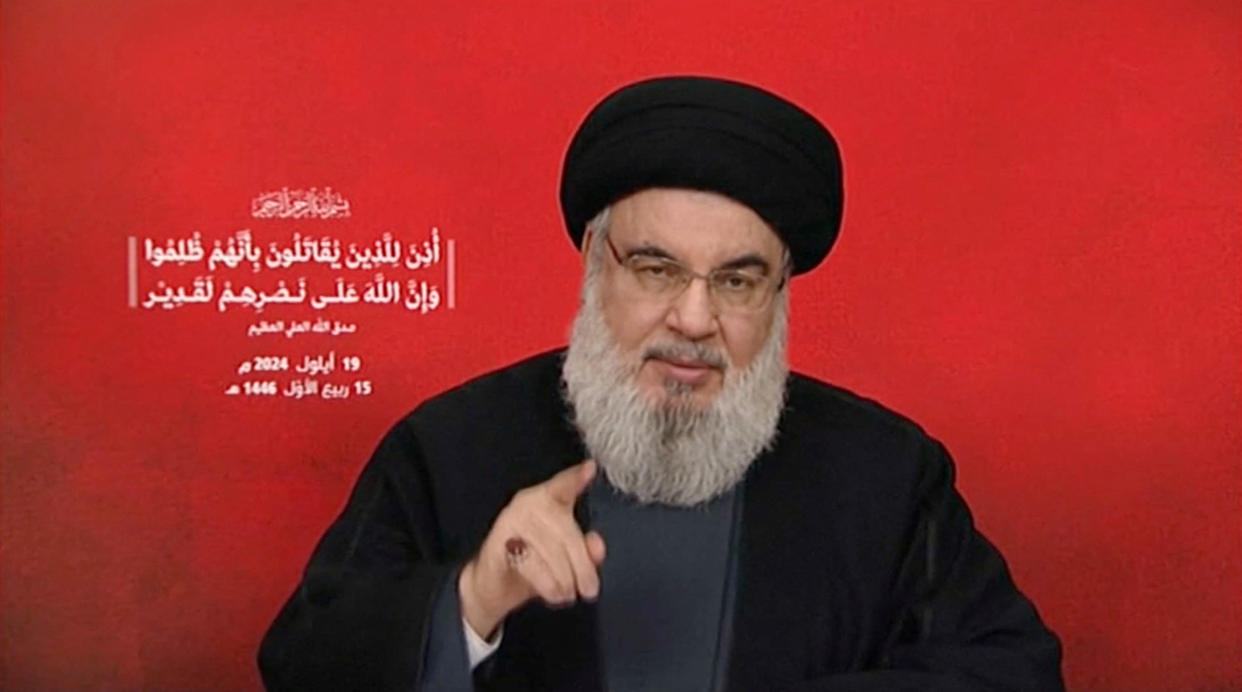
Deadly Israeli attacks that blew up Hezbollah radios and pagers crossed all red lines, the leader of the heavily armed Lebanese movement said on Thursday, in a speech broadcast as sonic booms from Israeli warplanes shook buildings in Beirut.
"There is no doubt that we have been subjected to a major security and military blow that is unprecedented in the history of the resistance and unprecedented in the history of Lebanon," Hezbollah leader Hassan Nasrallah said in his TV address, filmed at an undisclosed location.
The Lebanese army said on Thursday it was blowing up pagers and suspicious telecom devices in controlled blasts in different areas. It called on citizens to report any suspicious devices.
Pensioner arrested over 'Iran-backed plot to assassinate Netanyahu'
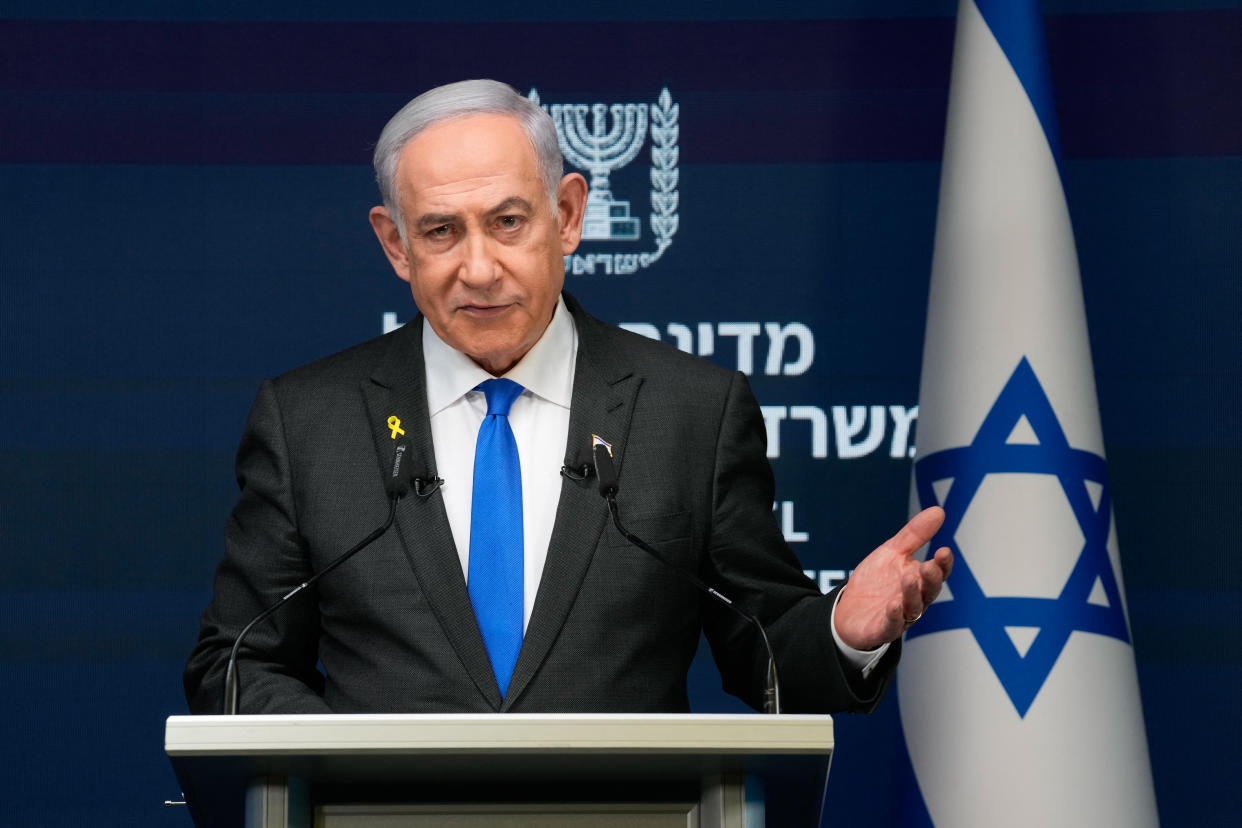
An Israeli man has been arrested on suspicion of involvement in a plot to assassinate prime minister Benjamin Netanyahu or other senior officials after being recruited by Iran, Israel’s internal security service has said.
The suspect – who was arrested in August – is a 73-year-old businessman with links to Turkey who had been smuggled into Iran for two meetings to discuss assassinating either Mr Netanyahu, defence minister Yoav Gallant or the head of the Shin Bet intelligence agency, it was alleged in a joint statement from the Israeli police and Shin Bet.
Pager and walkie-talkie attacks 'the 9/11 of Hezbollah'
The waves of remotely triggered explosions that hit pagers and walkie-talkies carried by Hezbollah members in grocery stores, on streets and at a funeral procession this week made for an eerie and shocking spectacle.
Analysts said Hezbollah will be able to regroup militarily and find communications workarounds after the attack, but the psychological effects will likely run deep.
Retired Lebanese army Gen. Elias Hanna described the attacks as the “Pearl Harbour or 9/11 of Hezbollah.”
Middle East is the 'closest to regional war since 1970s'
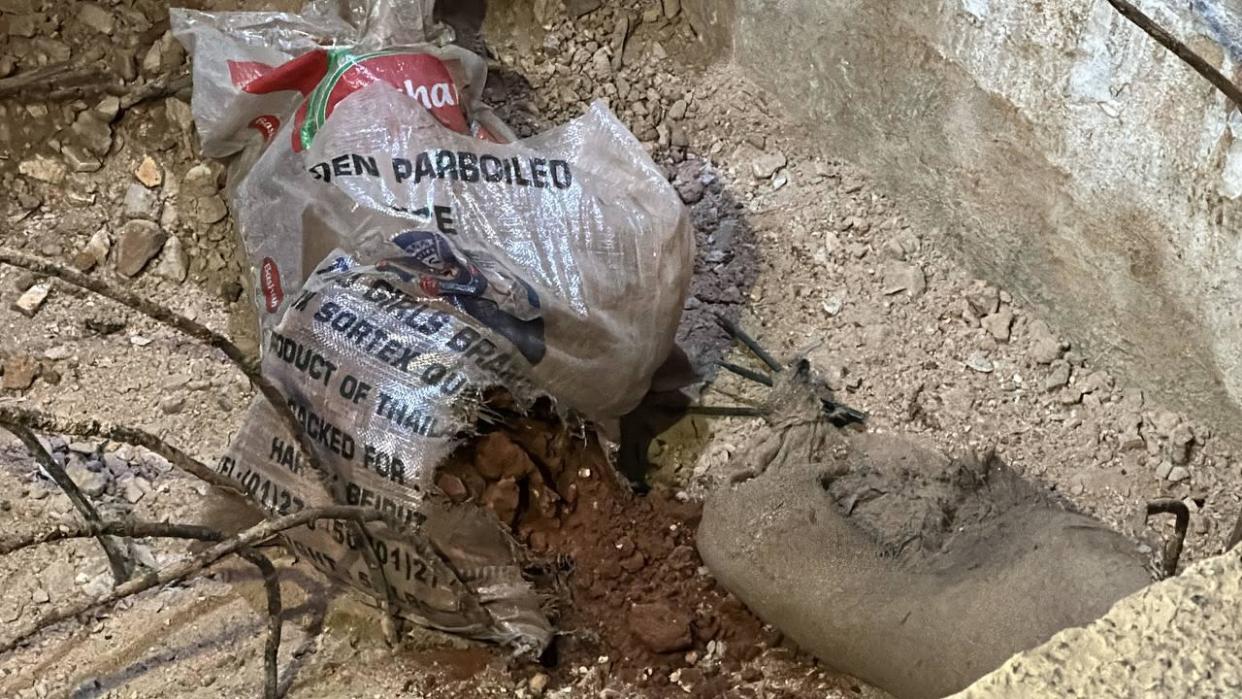
The Middle East is the closest it has been to regional war in 50 years, Saudi Arabia's ambassador to the UK has warned.
Prince Khalid bin Bandar al Saud told Sky News's The World with Yalda Hakim that the situation on the ground is only getting worse and it is time to put in "renewed efforts" to stop fighting in places like Gaza.
"I'd like to say I was optimistic, but it is difficult to see where that optimism would come from," he said when asked his reaction to the conflict. “The situation on the ground is getting worse and worse... I think this is the closest we've been to a regional war since 1973."
How did pagers and walkie-talkies explode and what do we know about the attacks?
A small amount of explosives were planted inside a new batch of 5,000 pagers ordered by Hezbollah for its members, according to a senior Lebanese security source who spoke to the Reuters news agency. Israel’s intelligence services were responsible, the source said.
“The Mossad injected a board inside of the device that has explosive material that receives a code. It’s very hard to detect it through any means. Even with any device or scanner,” the source said.
Another security source told Reuters that up to 3g of explosives had been hidden in the new pagers and had gone “undetected” by Hezbollah for months. The source said 3,000 of the pagers had exploded when a coded message was sent to them, simultaneously activating the explosives.
Raw anger and real fear on streets of Lebanon after deadly pager and radio explosions
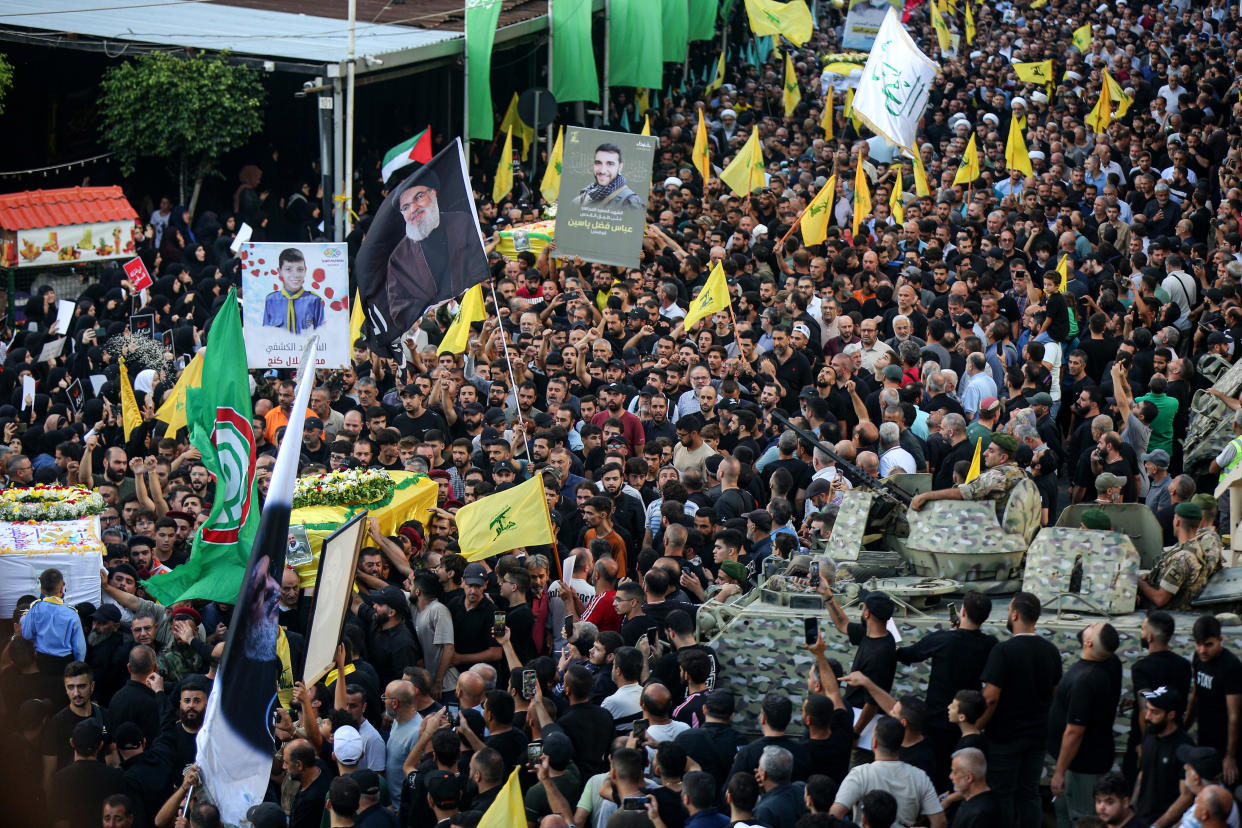
There's raw anger and real fear on the streets of Lebanon after two days of multiple explosions involving communication devices.
Less than 24 hours after the country was plunged into a major emergency with more than a dozen killed and nearly three thousand casualties being admitted to 90 hospitals, there was panic and deaths again.
Thousands had gathered in the southern suburbs of the Lebanese capital, Beirut, to attend funerals for four people killed during the pager explosions just one day earlier - among them a young boy. But barely had the funerals begun and as mourners were just beginning to pay their condolences, we heard the sound of an explosion a short distance away followed by shouts and screams.


